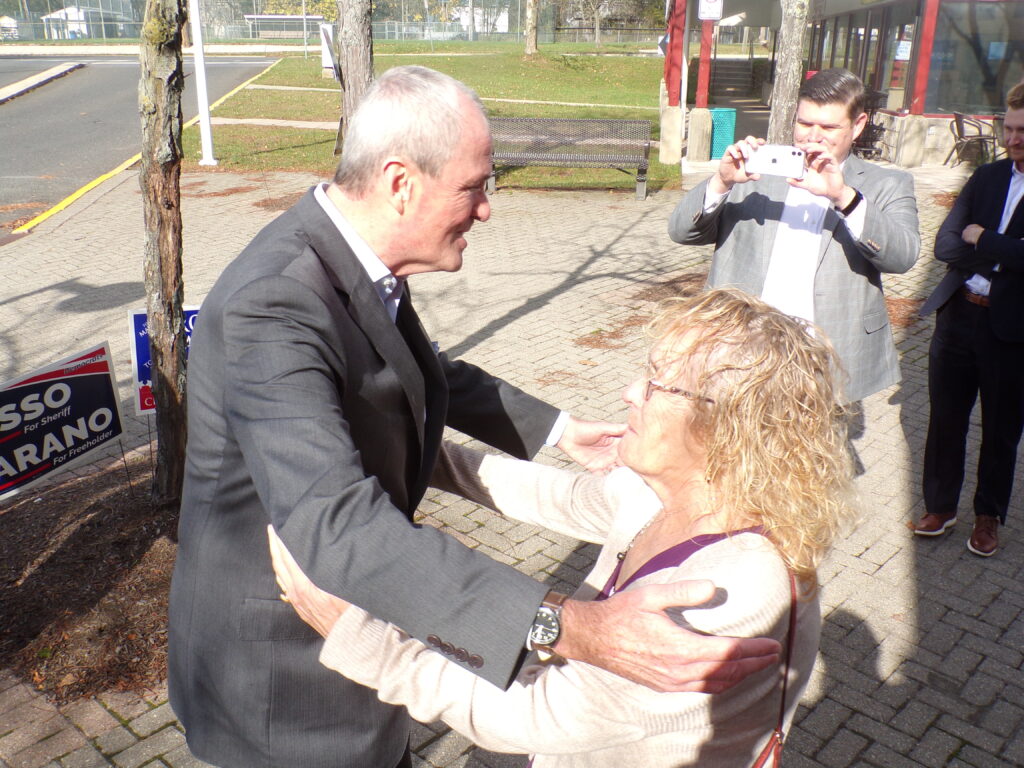Rutgers-Eagleton Poll: Two-Thirds of New Jerseyans Feel State is Moving at Right Pace to Reopen

As Governor Murphy continues to navigate how, when, and at what speed New Jersey should reopen, 66% of New Jerseyans feel the state is moving to lift restrictions and reopen businesses at just the right pace, according to the latest Rutgers-Eagleton Poll. Another 19% feel it is happening too quickly, while 16% say too slowly.
When do residents think New Jersey will reopen? The answer depends on how the question is asked. When asked how long they think it will take before the state starts to “loosen restrictions and reopen businesses,” New Jerseyans are somewhat optimistic for a summer timeline: 12% say it will happen sometime around now (May), 38% by June 1, and 26% by July 1. But when the question is phrased to ask how long before life returns to “normal” in New Jersey, views are somewhat bleaker. Just a third believe New Jersey will get back to normal by either mid-May, June 1, or July 1. Most say it will take longer than this: 17% say by the end of summer, 18% by the end of the year, and 25% say longer than that.
“Perceptions on the pace at which New Jersey is moving to reopen and when normalcy will return are divided by familiar partisan lines,” said Ashley Koning, assistant research professor and director of the Eagleton Center for Public Interest Polling (ECPIP) at Rutgers University–New Brunswick. “While a majority of Democrats, independents and Republicans alike agree with the speed of the state’s approach to reopen, Democrats do so to a far greater degree than their counterparts. Independents and Republicans are also more hopeful than Democrats when it comes to how long they think it will take before restrictions are loosened and life returns to normal.”
Even though large numbers of New Jerseyans accept and are realistic about the pace at which the state is moving to reopen, majorities are concerned about a variety of consequences that come with the virus and ongoing restrictions. Eight in ten are very (41%) or somewhat (38%) worried that they or someone in their household will get sick from the coronavirus; almost the same number (41% very, 35% somewhat) are worried about being prepared if they or someone in the household contracts it, and just over six in ten worry about obtaining a test if needed (29% very, 34% somewhat).
Finances and job security are also a concern for a large number of New Jerseyans. Almost six in ten are very (35%) or somewhat (23%) worried they will get laid off from work or have their hours or pay reduced due to the outbreak. A similar number are worried about being able to meet their monthly financial obligations (29% very, 31% somewhat). Three-quarters are worried about losing financial investments or savings (42% very, 31% somewhat).
Overwhelming majorities are worried about their hospitals and communities. Eight in ten worry (49% very, 32% somewhat) that their local hospital will run out of necessary equipment, like beds or ventilators for patients or personal protective equipment for health care workers. Nine in ten (58% very, 34% somewhat) worry that local businesses in their community will permanently close because of lost revenue due to the outbreak.
Eighteen percent are very worried and another 38% are somewhat worried about being able to obtain food and other household essentials.
“The degree to which some groups worry more than others about the outbreak’s various ramifications are stark,” said Koning. “Worry over the coronavirus itself, job or pay loss, finances, and local hospitals having proper equipment is much higher among black and Hispanic residents than white residents – often by double digits – as well as lower-income residents compared to those in higher income brackets.”
Results are from a statewide poll of 1,502 adults contacted by live callers on landlines and cell phones from April 22 – May 2. The full sample has a margin of error of +/-2.9 percentage points. Interviews were done in English and, when requested, Spanish.
Click Here to View the Full Release, Questions, and Tables.





